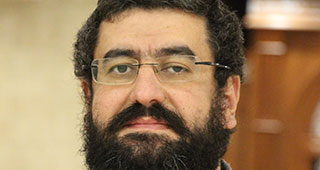- Sections
- Ein Ayah
202
Ein Ayah: When a person feels that he is included in the shortcomings of the human race as a whole, this is a reliable sign of his being impacted by sin and that he has the tendencies toward evil like other humans have. Then he needs to be subjected to the cleansing experience of needing to toil with difficulties to sustain himself, which removes sin from those with a natural tendency toward it.
When a person feels a unique personal affliction, this is a sign of a personal shortcoming which is beyond a tendency but is a sign of a sin that has actually come to fruition. This sin caused damage to the soul which required the person’s strength to be reduced, which is why his head started hurting him. In that state, he is considered as one who is incarcerated, as he cannot use all his physical and spiritual powers. The full use of powers is worthwhile for one who is righteous and can use them for proper activities and accomplishments. One who has deteriorated should be restrained from doing all that he wants. The kolaris a sign of this restraint, as it is a place that prevents a dangerous person from doing damage in society.
In contrast, internal tendencies can be fixed even if they are somewhat distorted, and a person can keep his full strength for a variety of activities, which require vitality. "I am Your servant the son of Your maid-servant, You released my bonds" (Tehillim 116:16).

The Benefits of Torah and of Eating
Various Rabbis | 5770

When Even Rav Kook Identifies a Jew as Evil
Ein Aya Shabbat 5,22
Rabbi Ari Shvat | Nissan 5783

The Benefits of Admonishing Even When Unheeded
Ein Aya Shabbat 5,17
Rabbi Ari Shvat | Adar 5783

Truth is Inside-Out But Justice: Outside-In
Rabbi Ari Shvat | Adar 5783

Writing on Shabbat
Rabbi Yirmiyohu Kaganoff

Building the Temple Today
Rabbi Avigdor Nebentzal | 5762

Using a Hand Masher for Cooked Vegetables
Rabbi Daniel Mann | Shvat 5773







